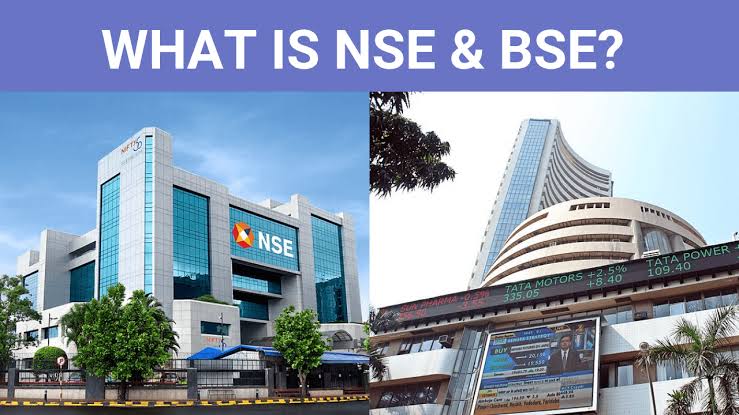The NSE (National Stock Exchange) and BSE (Bombay Stock Exchange) are the two primary stock exchanges in India. While both exchanges facilitate the buying and selling of stocks, there are a few key differences between them:

Establishment: The BSE was established in 1875, making it the oldest stock exchange in Asia. The NSE, on the other hand, was founded in 1992.
Ownership and Governance: The BSE is a corporatized and demutualized exchange, meaning it is owned by corporate entities. The NSE, on the other hand, is also a corporatized exchange, but it is owned by a set of financial institutions, including banks, insurance companies, and other financial intermediaries.
Trading Platform: The NSE introduced an electronic trading system known as the National Exchange for Automated Trading (NEAT), which revolutionized trading in India. The BSE initially used an open outcry system, but it has now shifted to an electronic trading platform called the BSE Bolt.

Market Indices: The NSE’s flagship index is the Nifty 50, which consists of the top 50 actively traded stocks on the exchange. The BSE’s main index is the Sensex, which comprises the 30 largest and most actively traded stocks on the BSE.
Market Share: The NSE has a larger market share and trading volume compared to the BSE. It is considered the more dominant exchange in terms of overall trading activity.
Listing Requirements: Both exchanges have similar listing requirements, including minimum capitalization, profitability, and track record criteria. However, the BSE has traditionally been more lenient in its listing norms compared to the NSE.

Global Visibility: The NSE has gained more international recognition and visibility, attracting foreign institutional investors and participating in various global indices. It is often seen as the face of Indian capital markets globally.
Despite these differences, both the NSE and BSE are regulated by the Securities and Exchange Board of India (SEBI), and they play crucial roles in facilitating trading, price discovery, and capital formation in India’s stock market.

